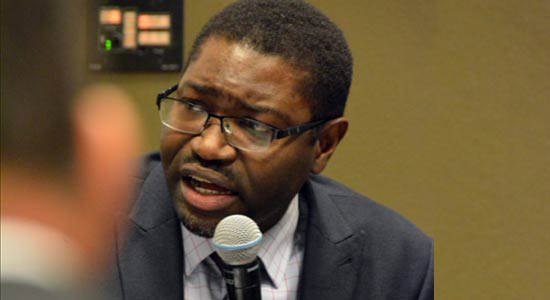Nigerian-born Dapo Akande, a professor of public international law at the University of Oxford, has been elected into the International Law Commission (ILC).
The Foreign, Commonwealth and Development Office announced the development on Friday.
Akande was nominated as the UK and Nigeria’s candidate for the commission.
His nomination made him the first-ever candidate to be selected in a joint nomination by the UK and Nigeria.
His nomination was also supported by Japan, Kenya and Slovenia.
The UK government had described his nomination as a demonstration of the UK and Nigeria’s “shared confidence that he will bring those high standards to the ILC”.
CONGRATULATIONS TO UK
CANDIDATE PROF. DAPO AKANDE @UKILCCAMPAIGN ON HIS ELECTION TO THE INTERNATIONAL LAW COMMISSION.
PROF. AKANDE WILL BRING 25+ YEARS OF LEGAL EXPERTISE AND EXPERIENCE TO THE ILC.
THE UK IS PROUD TO SUPPORT PROF AKANDE, THE ILC AND ITS INVALUABLE WORK. PIC.TWITTER.COM/AZ7LA5JOFV
— FOREIGN, COMMONWEALTH & DEVELOPMENT OFFICE (@FCDOGOVUK) NOVEMBER 12, 2021
Akande will serve as a member of ILC for a five-year term.
Raised in Ibadan, the Oyo state capital, Akande studied law at Obafemi Awolowo University, Ile-Ife, Osun state.
He is a world-renowned expert in public international law with more than 25 years of legal experience.
He began his legal career as a research assistant to Bola Ajibola, a former attorney-general of Nigeria, and has also worked as a counsel on international litigation before the International Court of Justice (ICJ), International Tribunal for the Law of the Sea (ITLOS), World Trade Organisation (WTO), International Criminal Court (ICC), and the European Court of Human Rights (ECHR).
Akande has served as a consultant to several international organisations, including the ICC, UN, the African Union (AU), the North Atlantic Treaty Organisation (NATO), the Food and Agriculture Organisation (FAO), and the Commonwealth Secretariat.
According to the UK government, Akande has represented Nigeria before the International Court of Justice, the International Tribunal for the Law of the Sea and at Arbitral Tribunals.
The International Law Commission was established by the UN general assembly in 1947 to undertake the mandate of the assembly, initiate studies and make recommendations for the purpose of encouraging the progressive development of international law and its codification.
